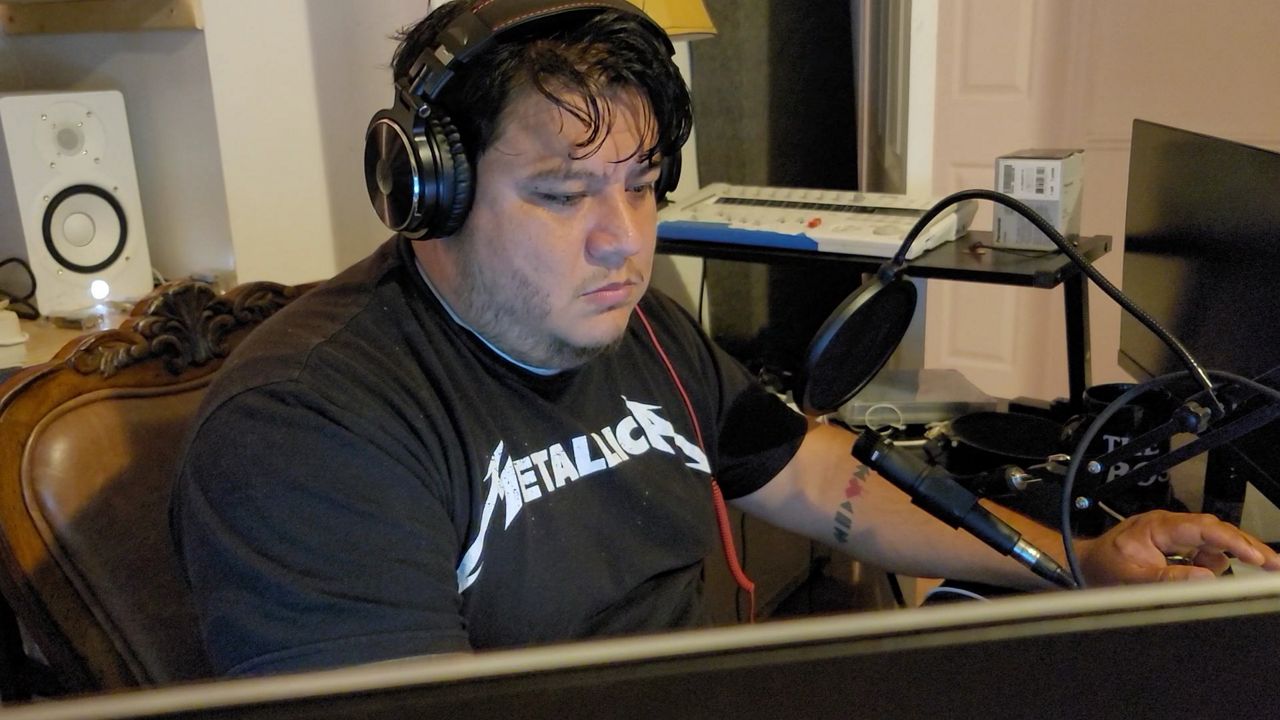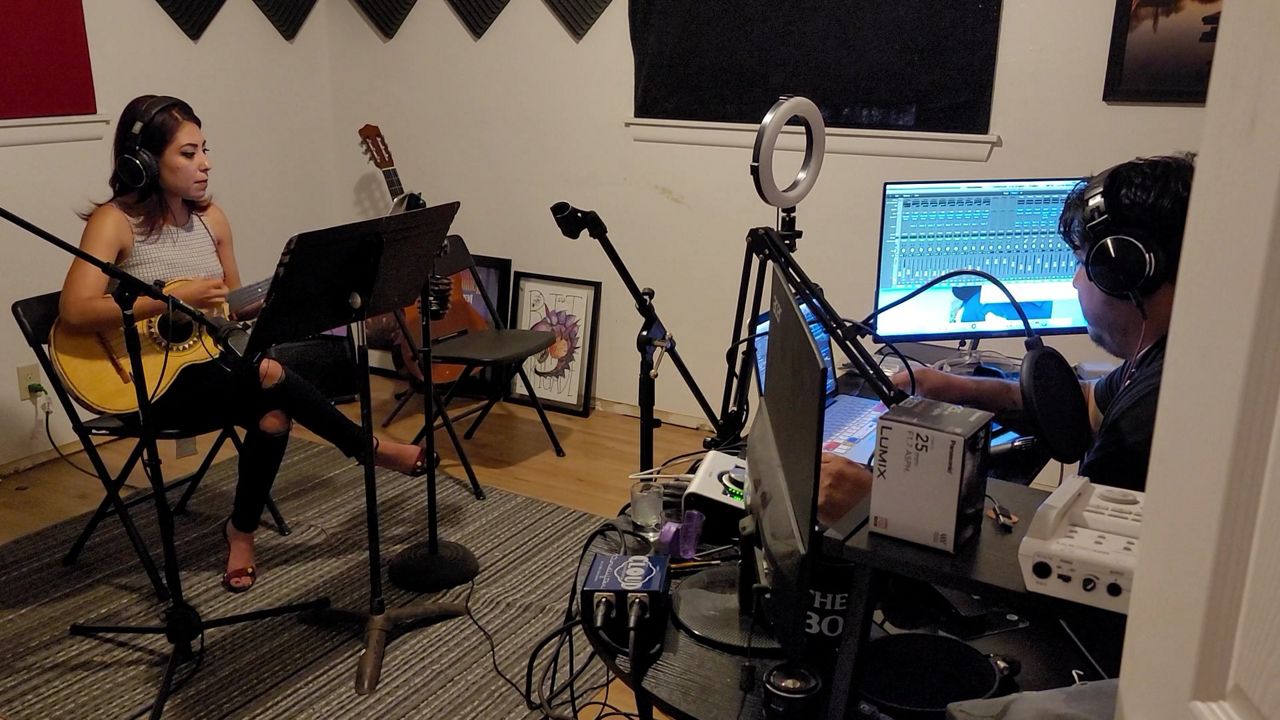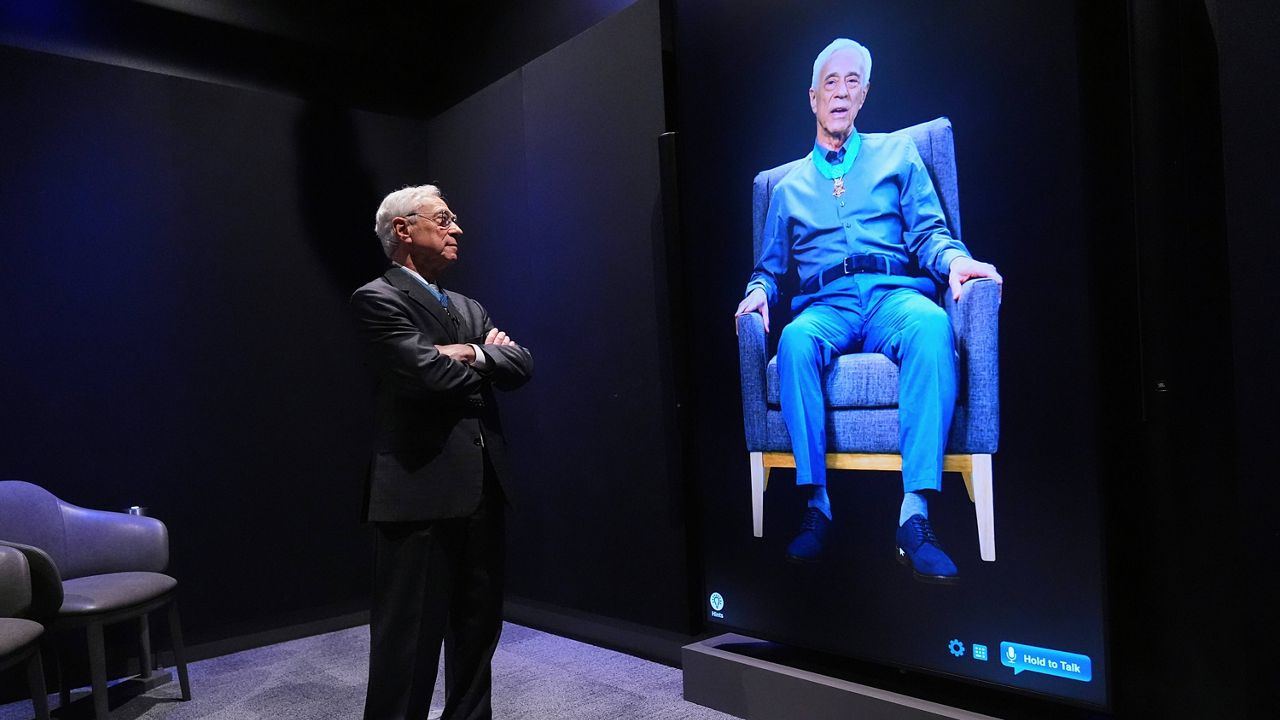TEXAS — Alina Mallén’s fingers strum a vihuela while she reads music.
“I love playing vihuela, it’s native to Mexico,” Mallén said.
Mallén is a professional mariachi and has been playing for most of her adult life. San Antonians may even recognize her time playing at Spurs games. As much as she is a traditionalist, the music is an arrangement of "Gerudo Valley." The song debuted on "Legend of Zelda: Ocarina of Time" in 1998.
“It’s so fun playing different chords, different progressions. You don’t generally see in traditional music,” she said.
Mallén is a founding member of Mariachi Entertainment System. She's known as Doomsday Lozano, according to her website bio.
“Seeing the nostalgia in other people when they hear us, it’s a lot of fun,” Mallén said.
Mallén does vocals, plays flute and vihuela. As founding member David Ortiz will tell you, she can pretty much do it all.
“We’re finishing the last touches on a 'Zelda' album that we’re working on for release later this year,” Ortiz said.
Ortiz is the musical director and writes arrangements for the band. He started playing mariachi in college and is a classically trained musician.
“I started noticing mariachis were discredited a lot. I didn’t really feel like the stereotypes about mariachis were true, it wasn’t always five fat guys drunk in a bar sounding terrible,” Ortiz said. “There’s a lot of good musicians that play.”

Ortiz felt video game music was also lacking appreciation.
“Video game music was also in that same category of not being legitimate by other classical musicians. I thought if I did both then others might see both are worthwhile endeavors,” Ortiz said.
MES has been around since 2015. Their YouTube channel showcases some of their live performances pre-pandemic that include venues like PAX South in San Antonio. Ortiz thought the YouTube channel was toast in 2020 but the group leveled up, releasing 20 videos last year.
Although Ortiz won’t brag on every piece of the group's work, he’s proud of the work they managed to do from separate studios.
“The minutia of getting a successful blend of styles like that is a delicate endeavor,” Ortiz said.
As fascinating as it may be to see mariachis playing video game music to some, there are those who believe it’s straying too much from tradition.

“People try to say stuff like, ‘Why are you playing this with mariachi? This isn’t what it’s supposed to be.’ We’ve been changing it up from the very beginning,” Mallén said.
She references Charro Avitia and Mariachi Vargas as artists who’ve inspired change.
“There’s the occasional person who doesn’t want to hear mariachi music playing and singing in English. It’s not their cup of tea,” Ortiz said. “It’s this criticism about how mariachis or musicians have approached other genres.”
Ortiz equates the beauty of fuzing two genres of music to food.
“You can put ketchup on your tacos and call if a fusion. To use those same ingredients in a thoughtful way to make something that is actually representative of different styles and cultures is much more delicate and requires much more thought,” Ortiz said.












